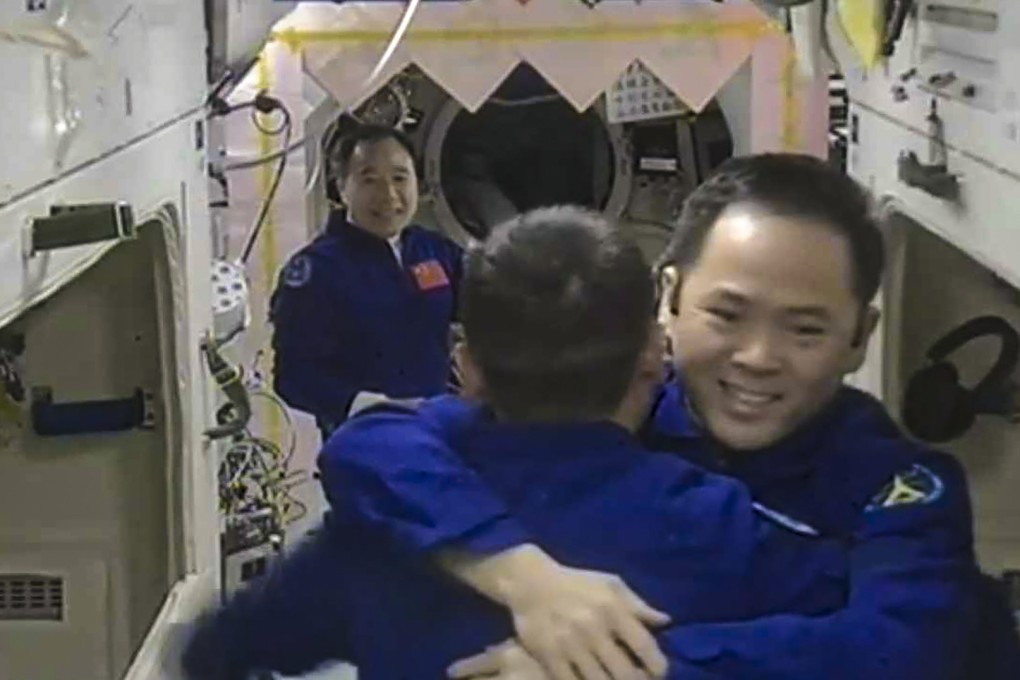Advertisement
Warm welcome for Shenzhou 16 crew at China’s Tiangong space station
- The spacecraft docks with station’s Tianhe core module 400km above Earth, less than seven hours after successful launch on Tuesday morning
- Experienced commander Jing Haipeng leads two first-time astronauts in ambitious mission to carry out in-orbit tests and experiments
Reading Time:3 minutes
Why you can trust SCMP
23

China’s Shenzhou 16 space crew were greeted with hugs on arrival at the Tiangong space station on Tuesday afternoon at the start of a five-month mission for the three astronauts, including the country’s first civilian team member.
The spacecraft docked with the station’s Tianhe core module 400km (248 miles) above Earth at about 4.29pm, less than seven hours after it launched from the Jiuquan Satellite Launch Centre in the Gobi Desert in northern China.
The Shenzhen 15 crew, who have been at the space station for six months, opened the hatch at 6.22pm and welcomed the new group in.
Advertisement
The China Manned Space Agency declared the launch a success about 19 minutes after the craft blasted off at 9.31am.
Before the launch, Shenzhou 16 commander Jing Haipeng said the mission marked “a new stage of application and development” in China’s space programme. It is Jing’s fourth journey into space, the highest of any of the country’s astronauts.
Advertisement
Advertisement
Select Voice
Select Speed
1.00x